Space
Sign up for our newsletter
We summarize the week's scientific breakthroughs every Thursday.
-
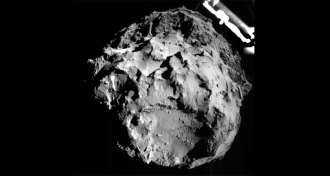 Astronomy
AstronomyRosetta mission lander set to explore surface of comet
The Rosetta spacecraft’s minifridge-sized lander Philae is now on comet 67P/Churyumov-Gerasimenko and is beginning to study its geology and chemistry.
-
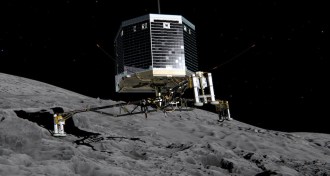 Planetary Science
Planetary SciencePhilae lander touches down on comet 67P
Rosetta’s lander Philae has reached the surface of comet 67P/Churyumov-Gerasimenko and is starting to do science.
-
 Astronomy
AstronomyPhilae lander is in free fall toward comet 67P
The Rosetta spacecraft has nudged its lander Philae off its back toward the surface of comet 67P/Churyumov-Gerasimenko.
-
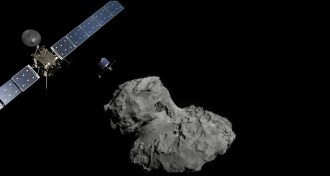 Planetary Science
Planetary SciencePhilae passes first go-no-go tests for comet landing
Philae and its mothership Rosetta are working through the final tests before scientists attempt to launch the lander toward the surface of comet 67P/Churyumov-Gerasimenko.
-
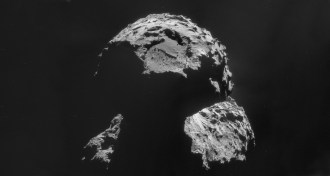 Astronomy
AstronomyRosetta’s countdown to comet landing has begun
Everything is on track for Rosetta mission scientists to attempt to set the Philae lander on the surface of comet 67P/Churyumov-Gerasimenko.
-
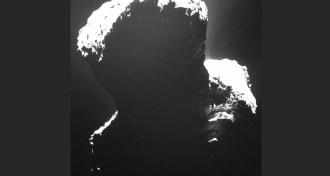 Planetary Science
Planetary ScienceRosetta prepares to let go of its comet lander
To date, everything is a go for scientists to attempt to land a robotic probe on a comet.
-
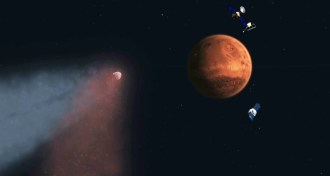 Planetary Science
Planetary ScienceComet delivered a showy meteor shower — on Mars
Comet Siding Spring dumped several tons of material into the Martian atmosphere that could have damaged NASA spacecraft.
-
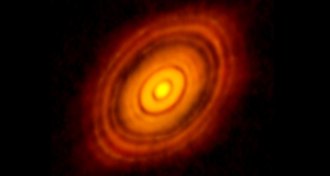 Astronomy
AstronomyInfant worlds carve gaps in planet-forming disk
A new image shows planets sweeping up gas and dust in a disk encircling the infant star HL Tau.
-
 Astronomy
AstronomyNearly starless galaxies found in nearby cluster
Astronomers have found 47 galaxies with relatively few stars, something not predicted by any galaxy formation theories.
-
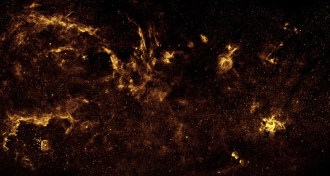 Cosmology
CosmologyGamma rays offer mixed messages on identity of dark matter
Conflicting results from Fermi telescope puzzle astronomers about dark matter’s true identity.
By Andrew Grant -
 Astronomy
AstronomyAmateur astronomer spots supernova in nearby galaxy
Koichi Itagaki noticed the exploding star as a brilliant point of light in the spiral galaxy M61.
-
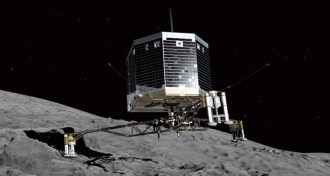 Astronomy
AstronomyRendezvous with a comet
On November 12, Rosetta mission scientists successfully completed the first-ever attempt to put a lander on a comet. See all Science News coverage of Rosetta and Philae's voyage to comet 67P/Churyumov-Gerasimenko.